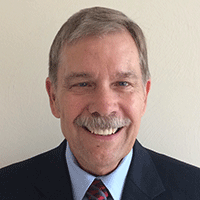
Ralph Hill
ASME Fellow
Chair, ASME Plant Systems Design Standard Committee
Managing Member, Hill Eng Solutions LLC
Plenary Title: Managing Complexity and the Authoritative Source of Truth
Abstract: Two of the greatest challenges of technology in our rapidly changing world are complexity, how we manage it, and how we ensure that the information we use is from an authoritative source of truth. This presentation discusses the role of engineers in managing technical complexity using the integrated design workflow in the new ASME Plant Systems Design standard. It also discusses use of integrated project teams as authoritative sources of truth for use with new design tools, including artificial intelligence.
Biography: Ralph S Hill III retired as a Westinghouse Electric Company, Consulting Engineer in 2014 and formed his own company, Hill Eng Solutions LLC. He has over forty-five years of technical and management experience including more than thirty-five years in planning, engineering design, construction, and modification for the nuclear power industry. In the fourteen years prior to Westinghouse, he provided strategic planning, system engineering, risk management, process evaluation, and project management consulting services to the U.S. Department of Energy in spent nuclear fuel, radioactive waste management, and nuclear materials disposition-related projects.
Ralph has been actively involved as a contributor and a leader in promulgation of ASME nuclear codes and standards for over 40 years and has been awarded the Melvin R. Green codes and Standards Medal, the Bernard F. Langer Nuclear Codes and Standards Award, the Codes and Standards Distinguished Service Award, and the grade of ASME Fellow. He is past Vice-Chair of the ASME Council on Standards and Certification, past Chair of the ASME Board on Nuclear Codes and Standards, and past Chair of the Boiler and Pressure Code, Section III, Nuclear Construction Standards Committee.
Although retired, Ralph continues his volunteer activities in support of ASME codes and standards. Currently Ralph serves as an Ex-Officio Member of the Board on Nuclear Codes and Standards, and as both champion and Chair of the Standards Committee on Plant Systems Design. Mr. Hill also participates on American Nuclear Society committees that are developing risk-informed and performance-based safety classification and design standards.

Brian Macejko, P.E.
Principal Engineer
Equity Engineering
Plenary Title: Leveraging Recent Advancements in Technology to Harmonize Equipment & Piping Minimum Permissible Temperature Limits
Abstract: The ASME Board on Pressure Technology Codes and Standards recently initiated a task group to investigate the inconsistencies and inadequacies that exist between the various codes and standards that are used to establish minimum permissible temperature limits for pressure vessels and piping. The objective of the task group is to employ state-of-the-art fracture mechanics principals in the development of alternative methods to determine design and operating constraints. This presentation will summarize the associated background and technical basis (where applicable) of existing brittle fracture screening procedures while highlighting deficiencies and discrepancies. The presentation will also outline a new proposed approach, anchored in modern fracture mechanics, to safely optimize minimum temperature limits by leveraging knowledge of each key input parameter that drives susceptibility to brittle fracture. The new methodology would permit harmonization and alignment with the various design margins (i.e., allowable stress basis) associated with the different ASME codes and standards. The proposed procedures may be considered in the design and construction of new pressure vessels and piping systems as well as for implementation in post-construction Fitness-For-Service assessments of existing equipment and piping.
Biography: Brian Macejko, P.E. is a Principal Engineer with Equity Engineering. He is currently Chair of the ASME/API Joint Committee on Fitness-For-Service, API 579-1/ASME FFS-1 (API 579), project team lead for API 579 Part 3 Assessment of Existing Equipment for Brittle Fracture, and lead for the ASME Board on Pressure Technology Codes and Standards task group on harmonization of brittle fracture screening procedures. Brian has over 20 years of experience as a consultant providing engineering support and training to the refining, oil and gas, fertilizer, pulp & paper, food processing, chemical, petrochemical, and other industries. Prior to becoming a consultant, Mr. Macejko worked as a facility engineer at a petroleum refinery then as a facility engineer at an inorganic chemical plant. Brian is registered as a licensed Professional Engineer in 6 states. He has authored or co-authored more than 20 industry publications. The primary focus of his experience has been design, maintenance/repair, failure analysis, finite element analysis, and Fitness-For-Service activities for fixed equipment.